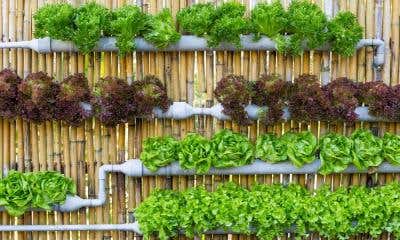Hydroponic cultivation has gained immense popularity in recent years due to its numerous benefits, such as efficient space utilization, reduced water consumption, and accelerated plant growth. To further enhance the productivity and efficiency of hydroponic systems, automation has emerged as a game-changer.
The Power of Automation in Hydroponics
Automation involves the integration of technology and smart systems to streamline and optimize various aspects of hydroponic cultivation. By automating key processes, growers can achieve better control, save time and resources, and ultimately maximize their yields. Let's dive into the specific ways automation can enhance your hydroponic cultivation:
1. Nutrient Delivery and Monitoring
Achieving precision and consistency in nutrient delivery is crucial for healthy plant growth. Automated systems can precisely measure and deliver nutrients to plants based on their specific needs, ensuring optimal nutrition. Sensors and controllers can monitor nutrient levels in real-time, automatically adjusting the nutrient solution's composition to maintain ideal conditions. This eliminates the guesswork and minimizes the risk of human error in nutrient management.
2. pH and EC Regulation
Maintaining the proper pH and electrical conductivity (EC) levels in hydroponic systems is essential for nutrient absorption and overall plant health. Automation enables continuous monitoring of pH and EC levels, triggering automatic adjustments when deviations occur. By integrating pH and EC sensors with dosing systems, growers can ensure that the nutrient solution remains within the optimal range, promoting optimal nutrient uptake and minimizing the risk of nutrient imbalances.
3. Irrigation and Watering
Proper irrigation is critical for hydroponic systems, as it directly affects nutrient delivery and plant hydration. Automated irrigation systems can be programmed to deliver water at specific intervals and durations, ensuring consistent moisture levels in the growing medium. This reduces the risk of overwatering or underwatering, which can lead to plant stress and nutrient leaching. Additionally, sensors can detect moisture levels in the substrate, triggering irrigation only when necessary, further optimizing water usage.
4. Climate Control
Maintaining the ideal environmental conditions is key to maximizing the productivity of hydroponic crops. Automation allows growers to monitor and control temperature, humidity, and ventilation systems. By integrating climate control systems, such as fans, heaters, and dehumidifiers, with sensors and controllers, growers can create and maintain the optimal microclimate for plant growth. This ensures that plants thrive in a consistent and favorable environment, promoting healthy development and minimizing the risk of diseases.
5. Lighting Optimization
Lighting plays a crucial role in hydroponic cultivation, as it serves as the primary source of energy for plants' photosynthesis. Automation allows for precise control over lighting schedules and intensity, replicating natural light conditions. Programmable timers and dimmers can simulate sunrise, sunset, and varying light intensities throughout the day, promoting optimal growth patterns and maximizing energy efficiency.
6. Data Monitoring and Analysis
Automation in hydroponic cultivation generates vast amounts of data that can be invaluable for optimizing plant growth and system performance. By utilizing data logging and analysis tools, growers can gain insights into crop behavior, nutrient uptake trends, and system efficiency. This data-driven approach enables growers to make data-backed decisions, fine-tuning their cultivation practices and achieving continuous improvement.
Automation has transformed hydroponic cultivation by providing growers with precise control, consistency, and convenience. From nutrient delivery and monitoring to climate control and data analysis, automation streamlines and optimizes key processes, resulting in increased productivity and enhanced crop quality. Embracing automation in your hydroponic system empowers you to achieve the full potential of this innovative cultivation method. So why not leverage the power of automation and take your hydroponic cultivation to new heights?
















